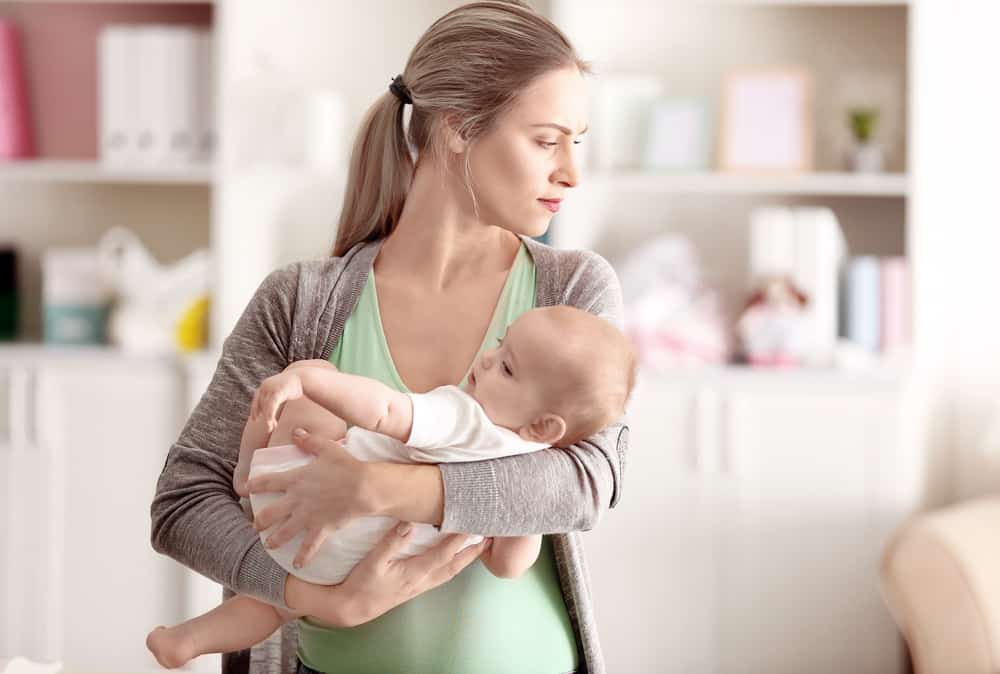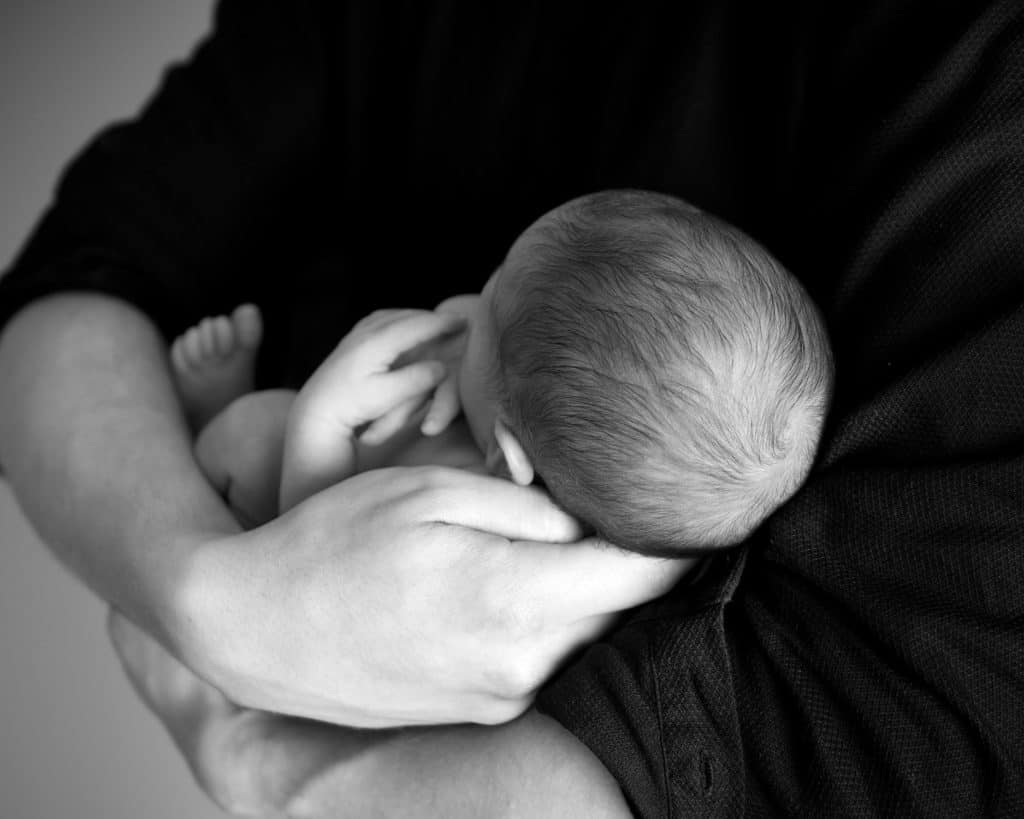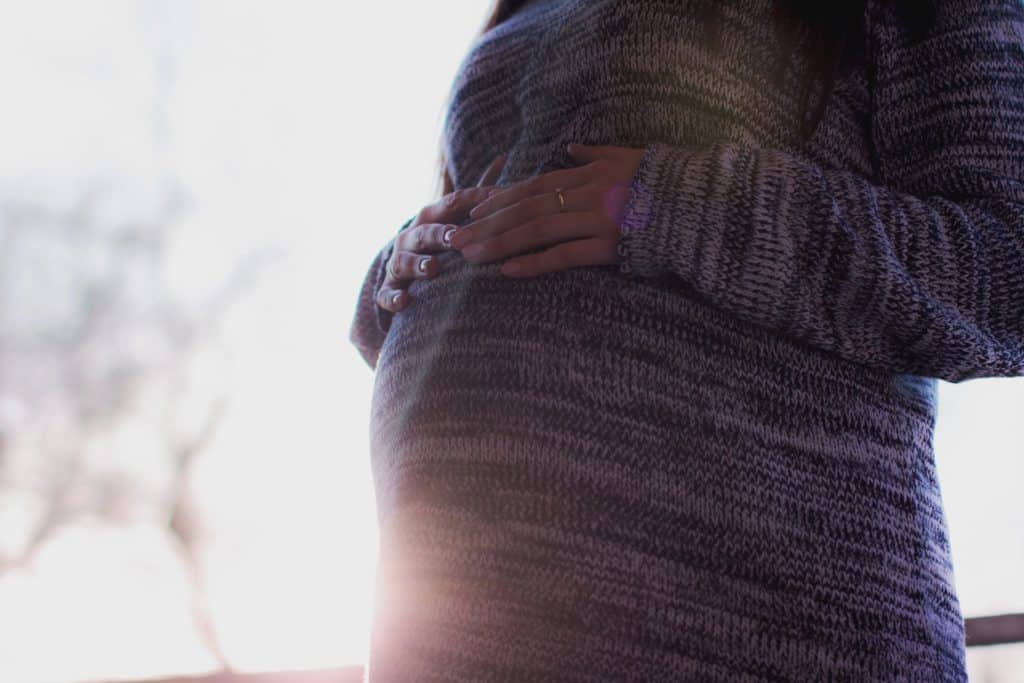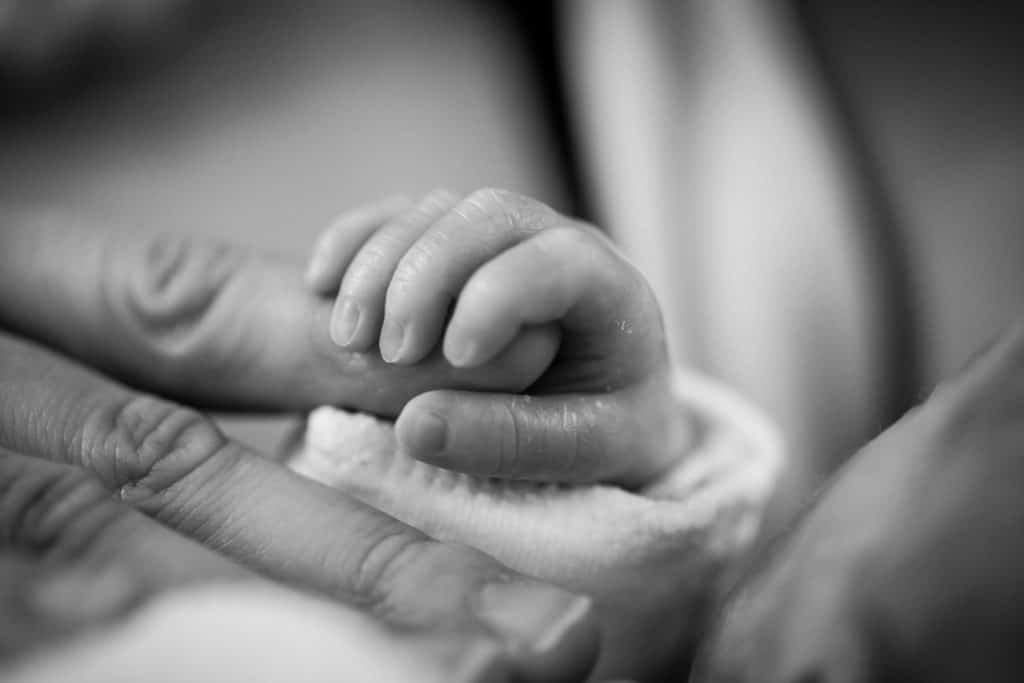Welcoming a new baby into the world and the home is a magnificent, awe-inspiring time for new and pre-existing mothers and fathers. Despite all the excitement surrounding the birth of a child, it can also be a challenging time for parents, as the introduction of a baby brings major life adjustments. These difficulties are generally short-lived and subside within due time.
In some cases however, mothers and fathers of a newborn child can find life especially difficult and distressing and post-natal depression (PND) may develop. Depression (i.e. intense sadness or low mood) that develops in the twelve months following the birth of a child is referred to as post-natal depression. To learn the signs and symptoms of PND, please read our article ‘What Are The Signs Of Post Natal Depression?’).
PND is very common and affects approximately 1 in 7* women following childbirth. It is very important to remember that some men may also suffer from PND following the birth of a child. (For more information regarding the signs and symptoms of post-natal depression in men, check out our article titled ‘Signs And Symptoms Of Post-Natal Depression In Men’ by clicking here).
Risk Factors For Post-Natal Depression
There are a number of different risk factors that may increase the likelihood of a mother or father developing PND following the birth of a baby, including (but not limited to) the following.
History Of Depression (Personal Or Family)
If you have experienced depression or post-natal depression in the past, or antenatal depression (depression that is suffered during pregnancy), you may have an increased risk of developing post-natal depression. Similarly, if your family has a history of depression, you may be more likely to experience post-natal depression following the birth of a child than a person who does not.
Difficult Pregnancy
Difficulties during pregnancy such as hyperemesis gravidarum, bed rest, or concerns regarding the viability or development of the baby may contribute to the development of PND. In some cases, unplanned or unwanted pregnancies may also trigger PND in parents.
Difficulty Becoming Pregnant Or Previous Loss
Women and men who have faced challenges and emotional distress surrounding infertility, miscarriage, pregnancy loss or stillbirth may be particularly concerned about the health and development of their new baby.
Birth Trauma
Birth trauma refers to physical or psychological distress following a difficult, complicated or unexpected birthing experience. Premature delivery, emergency C-sections or painful/prolonged labour are common examples of traumatic birth. A traumatic birth may significantly impact the mental and emotional health of both mums and dads.
Birth Disappointment
Hopes and expectations of a calm, natural, supported labour and birth may play a part in how a woman depicts herself as a favourable mother. As is the case for many women, labour and childbirth does not always go to plan, and this can lead to feeling largely disappointed and/or inadequate.
Stress/Difficulties Following Childbirth
In some situations, a baby and its parents may struggle following childbirth, for a variety of different reasons. For example, multiple births, baby’s admission to NICU (Neonatal Intensive Care Unit), physical limitations or breast-feeding troubles can all cause distress and take a toll on the emotional health of the family.
Relationship Complications
Experiencing difficulties in your relationship with your partner, family members or close friends can negatively impact your emotional health.
Lack Of Social Support Network
A supportive partner and/or close family and friends play a pivotal role following the birth of a new baby, physically, mentally and emotionally. Feeling alone or isolated, particularly once a baby is brought home can take a great toll on the health of new parents.
Abuse (Emotional/Verbal/Physical/Sexual)
Mothers and fathers who have experienced childhood abuse or trauma (such as the loss of a parent) may find painful memories are triggered following the birth of their own child.
Situations of domestic violence or emotional abuse/controlling behaviour in a household may also be largely detrimental to the emotional and mental health of parents and baby.
Stress/Stressful Life Events
Chronic stress or major life adjustments which often involve large amounts of stress such as chronic illness, separation or divorce, the loss of a loved one, redundancy, moving home or financial hardship can affect the mental and emotional health of mums and dads.
Financial Strain
Financial problems such as job loss, reduced income and/or large amounts of debt can cause new parents to feel stressed and mentally/emotionally exhausted.
Personality Factors
While not specifically a risk factor, a relationship may exist between certain personality factors and PND, such as the need for perfection or control, or a lack of confidence and/or self-esteem.
Experiencing any of the above risk factors is not a guarantee that you will suffer from post-natal depression following the birth of your child, but rather these factors can increase your risk of suffering from PND. It is important to understand the risk factors of PND as well as the signs and symptoms of this common mental health illness, in order to recognise if you or someone you care about are suffering from PND and can therefore proceed with getting professional help and support.
Contact Blissiree Pty Ltd today for professional support for post-natal depression.






